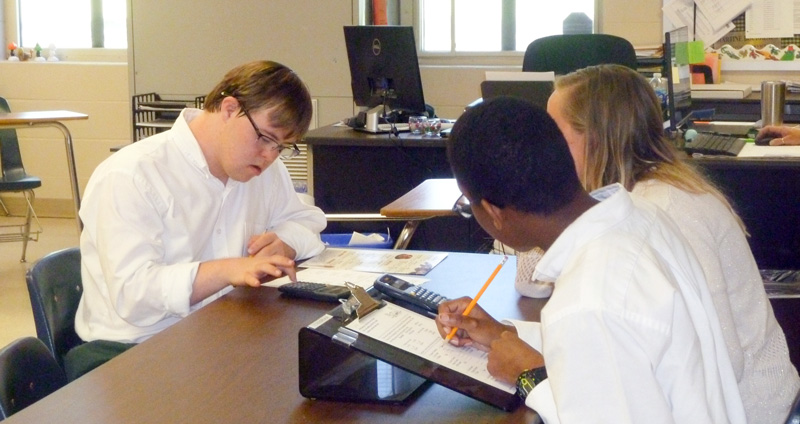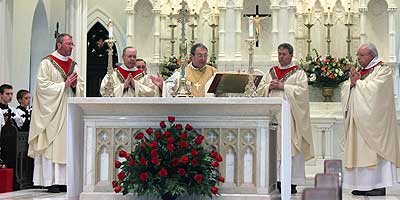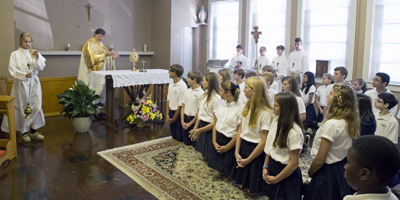
When the St. Thomas Aquinas Scholarship Fund was absorbed into a new program called Exceptional SC, it resulted in a good news, bad news scenario.
The good news: there is still scholarship funding available for students with special needs who want to attend a private school. The bad news: the Diocese of Charleston no longer has sole oversight over the distribution of the funds it raises.
Michael Acquilano, director of the South Carolina Catholic Conference, said some donors are disappointed because it means Catholic schools will no longer receive 100 percent of funds raised by the diocese. Instead, all monies will go in one pot and be distributed among all the schools in the state. Before, the St. Thomas Aquinas organization, and three others like it, were in charge of raising and distributing their own monies.
Scholarship Funding Organizations such as the St. Thomas one came into being in 2013 when the S.C. legislature passed a school choice bill designated for special needs children. The organizations provided scholarship funding to qualified students, which allowed them to attend private schools that suited their educational needs.
In the three years that the St. Thomas Aquinas fund operated, it provided $4.1 million to over 600 students with special needs, Acquilano said.
However, this past June, state lawmakers voted to ban independent scholarship organizations and absorb the existing ones into the new Exceptional SC. It is supervised by a five-member board of directors appointed by House and Senate finance leaders and Gov. Nikki Haley. Acquilano holds one of those spots, along with Betsy Fanning from Trident Academy, Spencer Jordan from Laurence Manning Academy, Thomas Persons from South Carolina Technology Alliance, and Edward Earwood from South Carolina Association of Christian Schools.
The new program puts all scholarship funding under the oversight of the state Department of Revenue. Exceptional SC is now in charge of the Educational Credit for Exceptional Needs Children, which provides tax credits up to 60 percent for all donations made to special needs scholarships.
Acquilano said donors to the scholarship fund are still interested in giving because of the tax credit, but some are dismayed that Catholic schools will only receive a percentage of the funds — which could make fundraising more difficult.
Schools are also concerned what the changes mean for the students — around 600 — who received scholarships last year and are already enrolled for the current term.
Acquilano explained that families who had already received scholarship funds were grandfathered in for the 2016-17 school year.
Still, there are 75 new applicants who are enrolled and attending Catholic schools, but still waiting to hear if they will receive scholarship funding. Acquilano said it is a matter of wait-and-see as the board works out the details. He stressed that some sort of solution will be found.
Regardless of the changes made, Acquilano said the diocese will continue to work for the educational rights of special needs children.
“This is where our Church needs to be,” he said. “It’s all about being pro-life.”
St. Thomas Aquinas scholarship fund: by the numbers
2013: year it was created
8: students who applied the first year
600+: students who applied this year
$4.1 million: has been awarded so far
$5,696: average amount per student
34: schools in the diocese
29: schools that have applied for and received funding
25: new special needs programs created through funding
Photo provided



